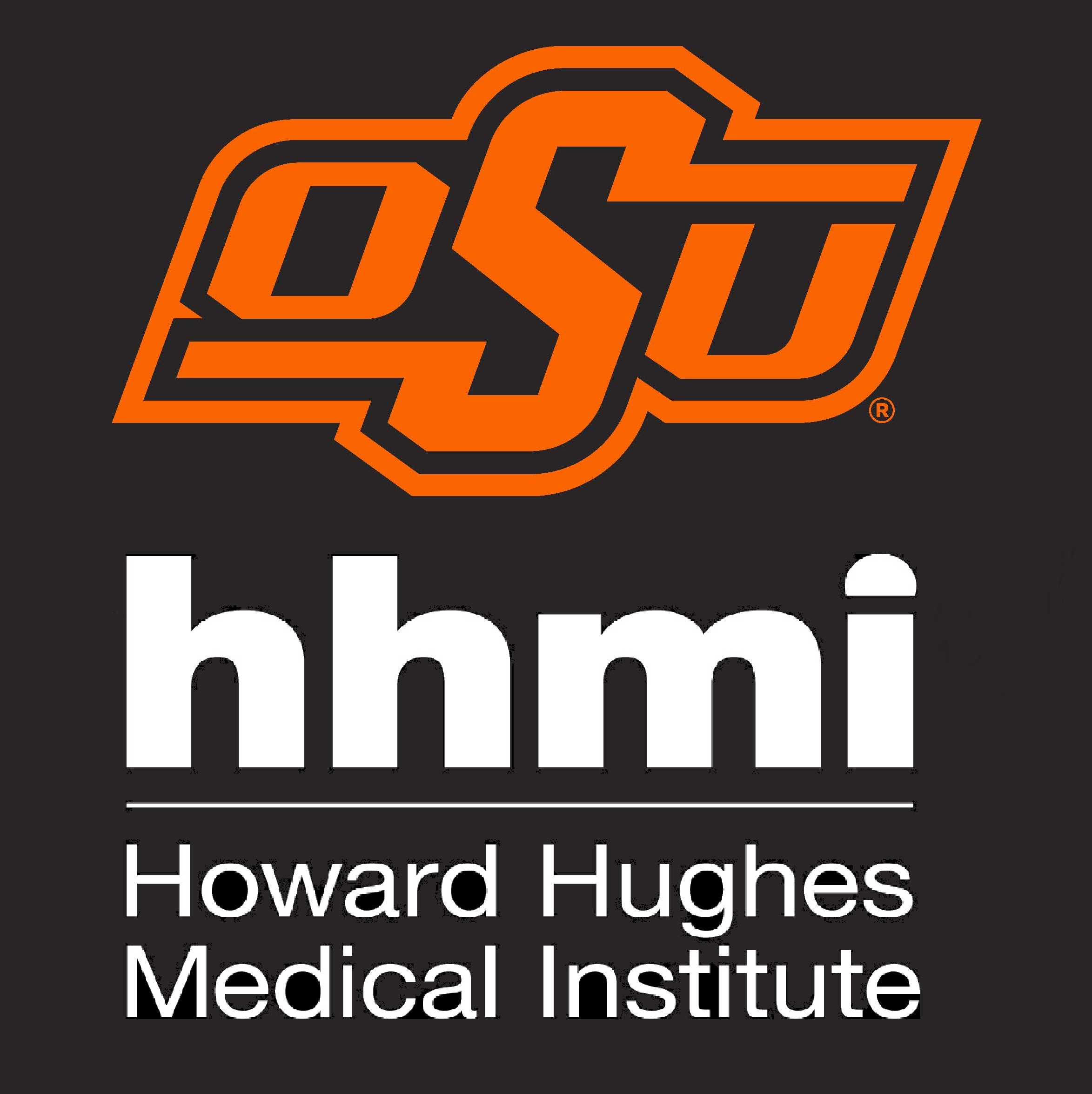Thank you for your interest in the OSU-HHMI program!
This 5-year grant from the Howard Hughes Medical Institute was awarded to Oklahoma State University through the Science Education Program in September 2014. The mission of this grant was and is to create authentic research (AR) experiences for undergraduate students in the life sciences and increase persistence among majors in the life sciences.
OUR GOALS
Course Revisions
Our main goal is to shift the culture regarding the relation between education and research campus-wide, with STEM undergraduate majors being energized through AR and faculty viewing undergraduate courses as opportunities for research. Students entering discipline-specific introductory courses can choose AR sections. In those, research will be more open and long-term and have the goal of providing at least exploratory data to ongoing or future faculty research projects when possible. Courses will incorporate student-edited, peer-reviewed journals and opportunities for students to continue working with data or systems from previous courses.
Our current research courses include the following:
- BIOC 1990 - Introduction to Biochemistry Research
- BIOL 1114 - Introductory Biology
- BIOL 1604/2890 - Animal Biology; Add-On for DNA Barcoding
- MICR 2132 - Introduction to Microbiology LAB
Upcoming revisions in:
- CHEM 1314 - Chemistry I
- CHEM 1515 - Chemistry 2
Undergraduate Research Scholars
Students who enter OSU interested in research will be directed to our new Life Sciences Freshman Research Scholars (LSFRS) program. In the first semester course, LSFRS will learn research skills, identify research mentors, and prepare proposals. In the second course, students will conduct research with faculty and continue to exchange ideas with LSFRS instructors and peers.
Upon successful completion of the program, students receive a $1,000 scholarship with additional opportunities to receive symposium awards and travel scholarships.
Alumni of the program are then invited to become peer ambassadors for the following year's incoming freshmen. They provide advice and answer questions based on their experiences, help with writing, tutoring, and peer reviewing manuscripts and proposals. You can meet some of our ambassadors and read about their services here.
Professional Development
To encourage all students to join the research community, we will create a series of networking events spanning the school year. Events will promote connections among first-year students, upper-classmen, faculty, and staff, highlight first-year students' research, and allow first-year students to see the work of upper-division students, explore research conducted by all life scientists, meet career services' and student groups' representatives, and interact with guest researchers after department seminars. Furthermore, we will leverage OSU's position as a leader in number of STEM BS degrees earned by Native Americans and collaborate with new and well-established programs, tribal elders, and networks of mentors that support URM participation in research to offer professional development and cultural events that encourage participation and sense of community among Native Americans in the life sciences.
Some of the groups that we work with are: Office of Scholar Development & Undergraduate Research, OSU Career Services, Center for Sovereign Nations, OK-LSAMP, McNair Scholars, Society for the Advancement of Chicanos/Hispanics & Native Americans in Science (SACNAS), and the National Biological Honor Society (Beta Beta Beta).
You can visit our outreach partners' individual sites by selecting the option of your choice under Our Team in the menu tab.
Additionally, our team provides professional development workshops to further students' education in both their classes and research. The following workshops have already been developed with more to come:
- Finding and annotating references
- Organization of Research Report
- Experimental Design Basics
- Preparing a Poster
- Presenting a Poster
- Excel Basics
- Graphing in Excel
- Basic inference testing (t-test; ANOVA) in SPSS
- Writing an Introduction
- Writing a Discussion
- Finding & Communicating Results
- Building an Abstract

